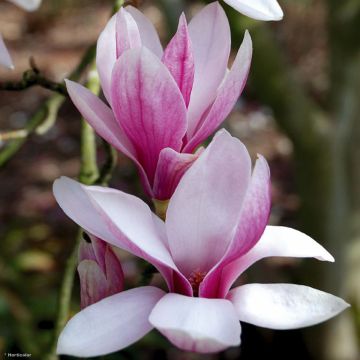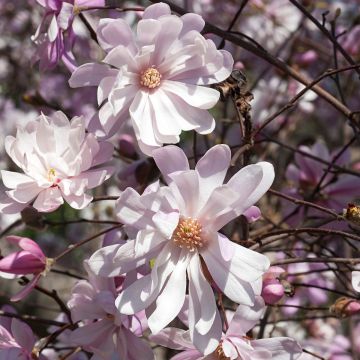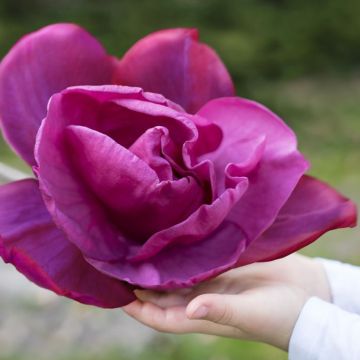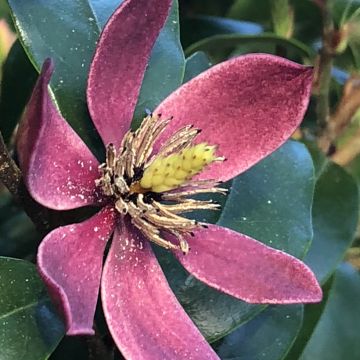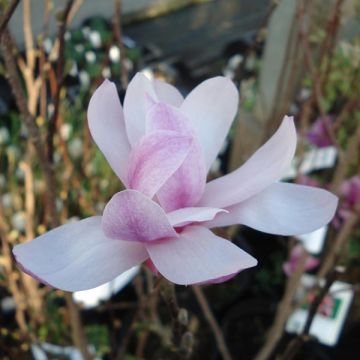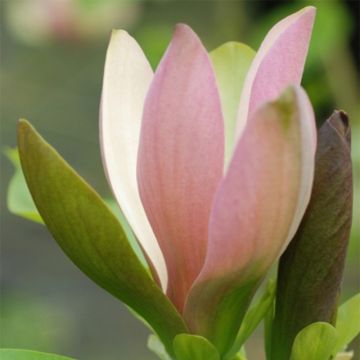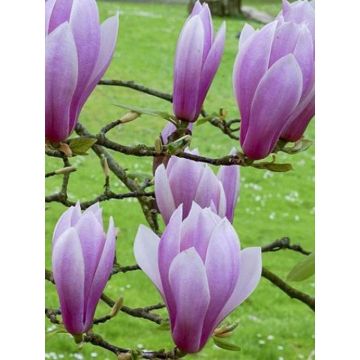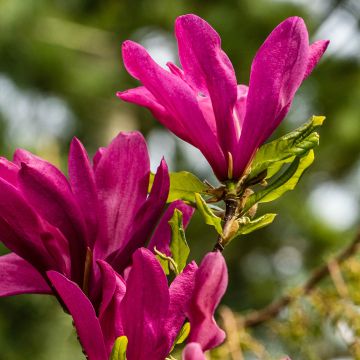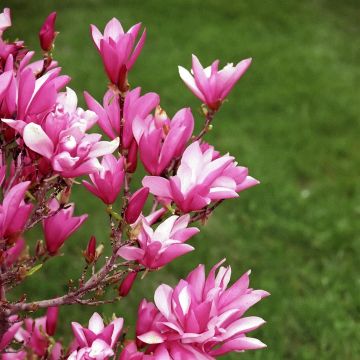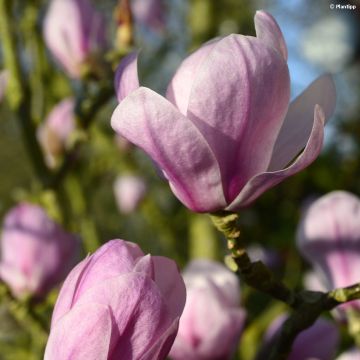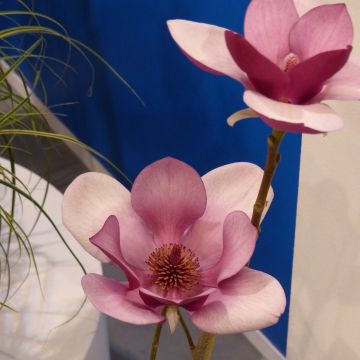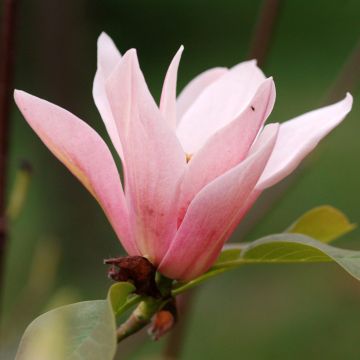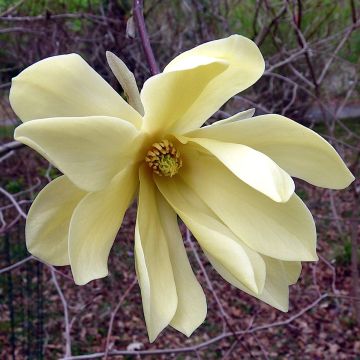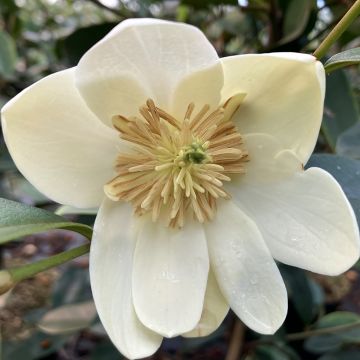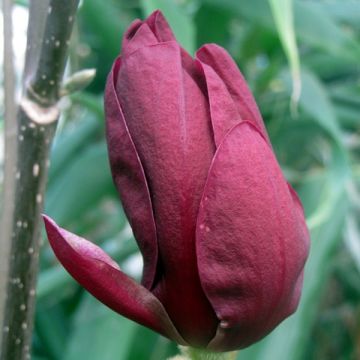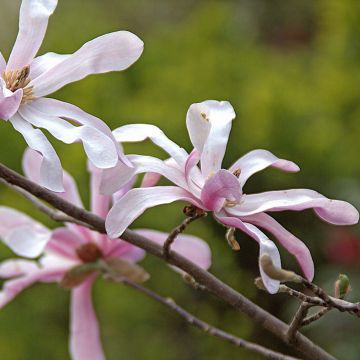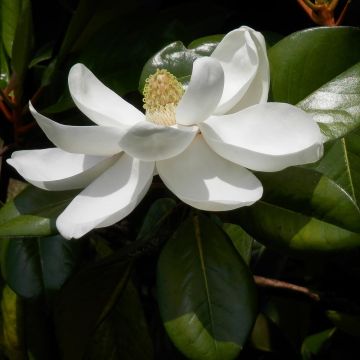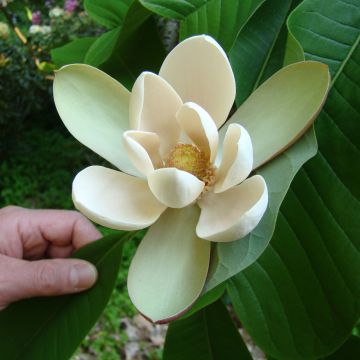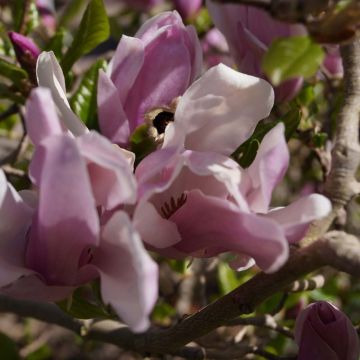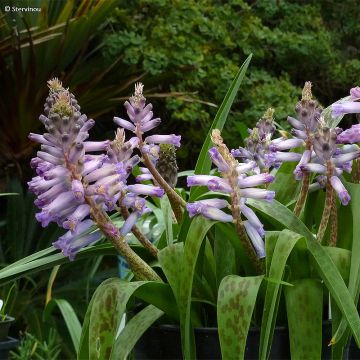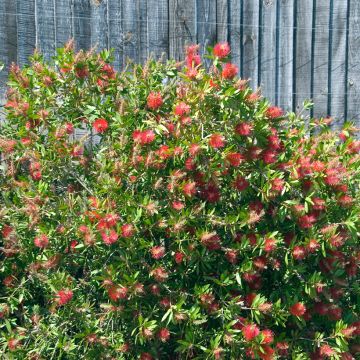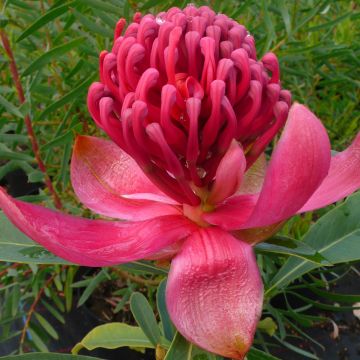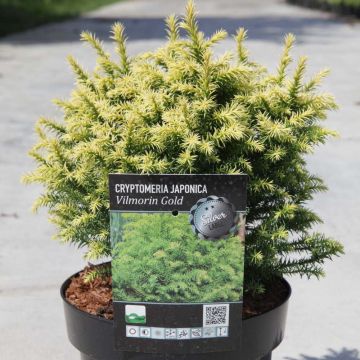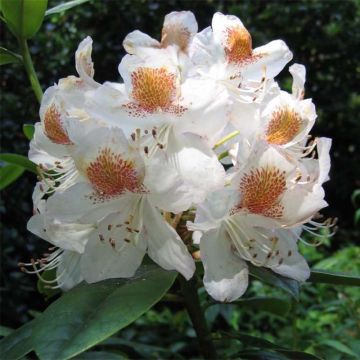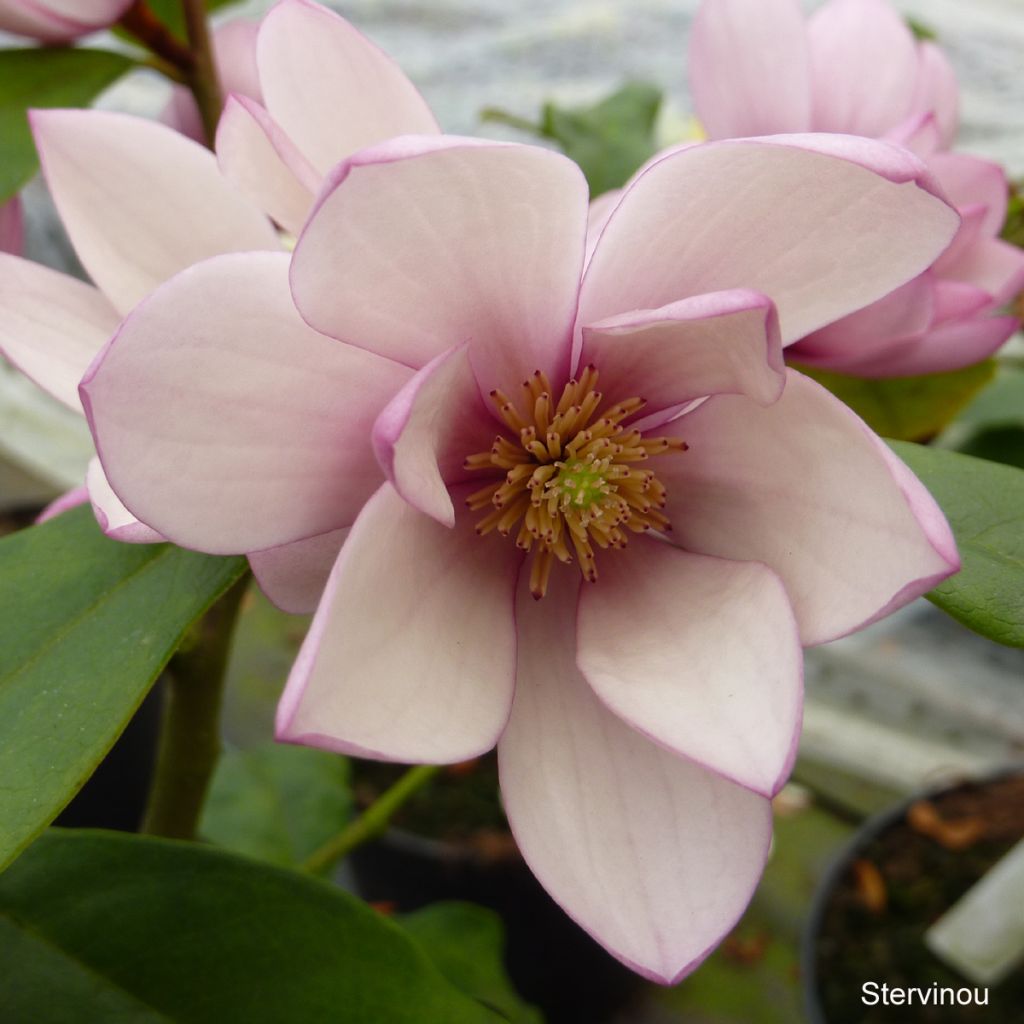

Magnolia Fairy Blush - Michelia hybrid
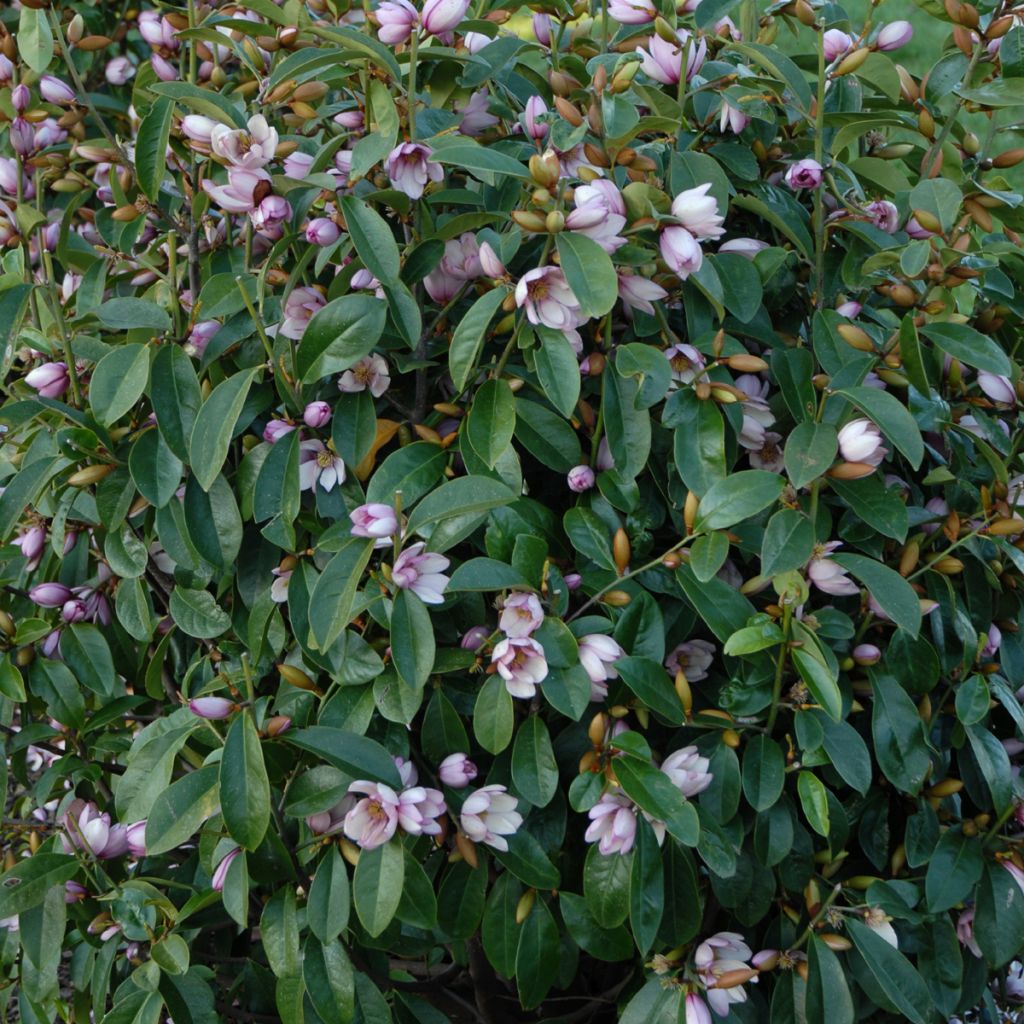

Magnolia Fairy Blush - Michelia hybrid
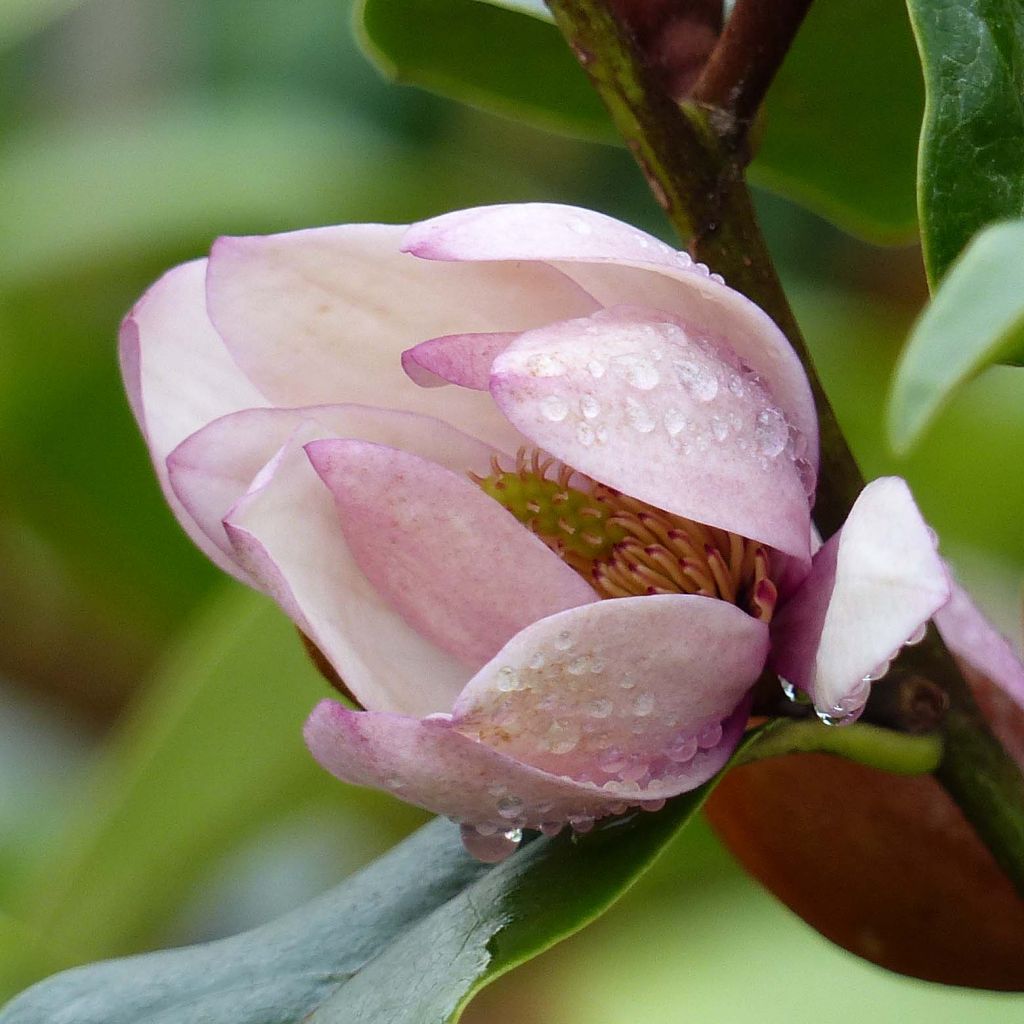

Magnolia Fairy Blush - Michelia hybrid
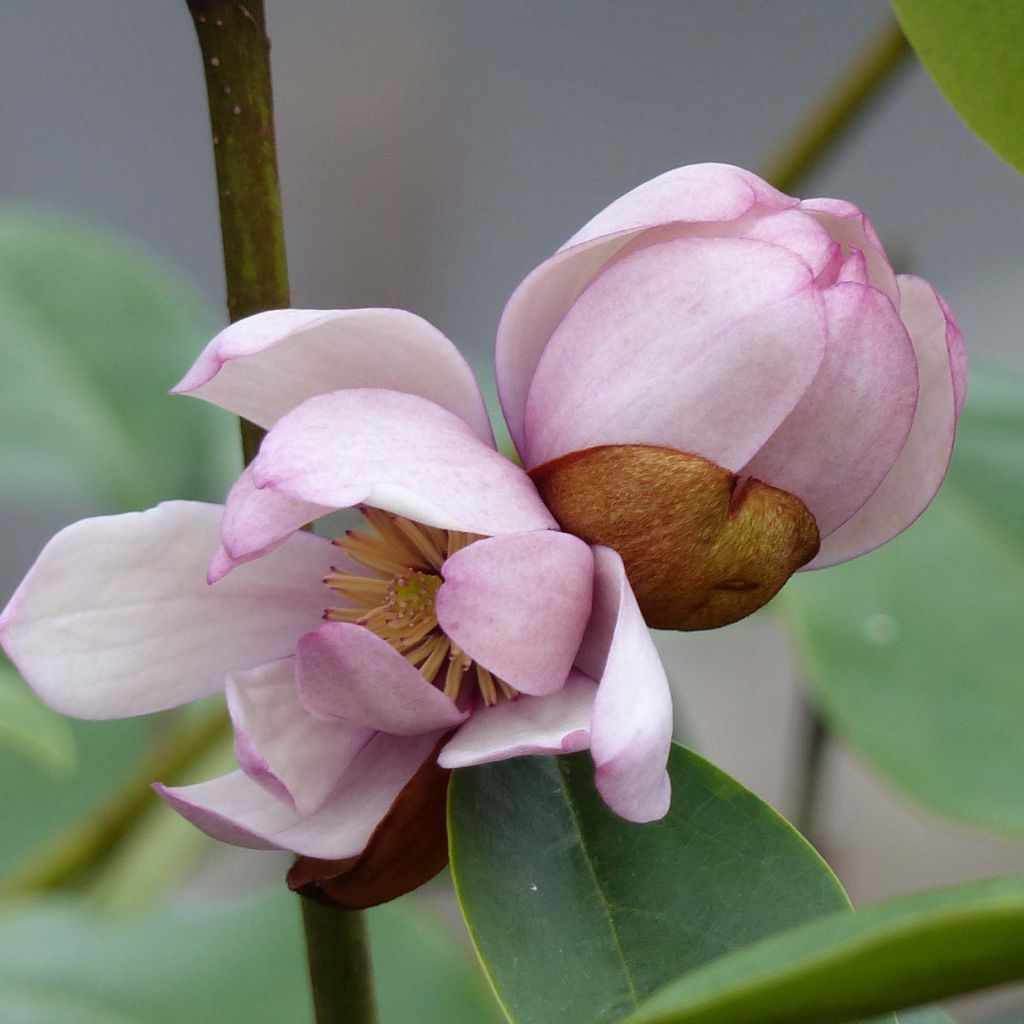

Magnolia Fairy Blush - Michelia hybrid
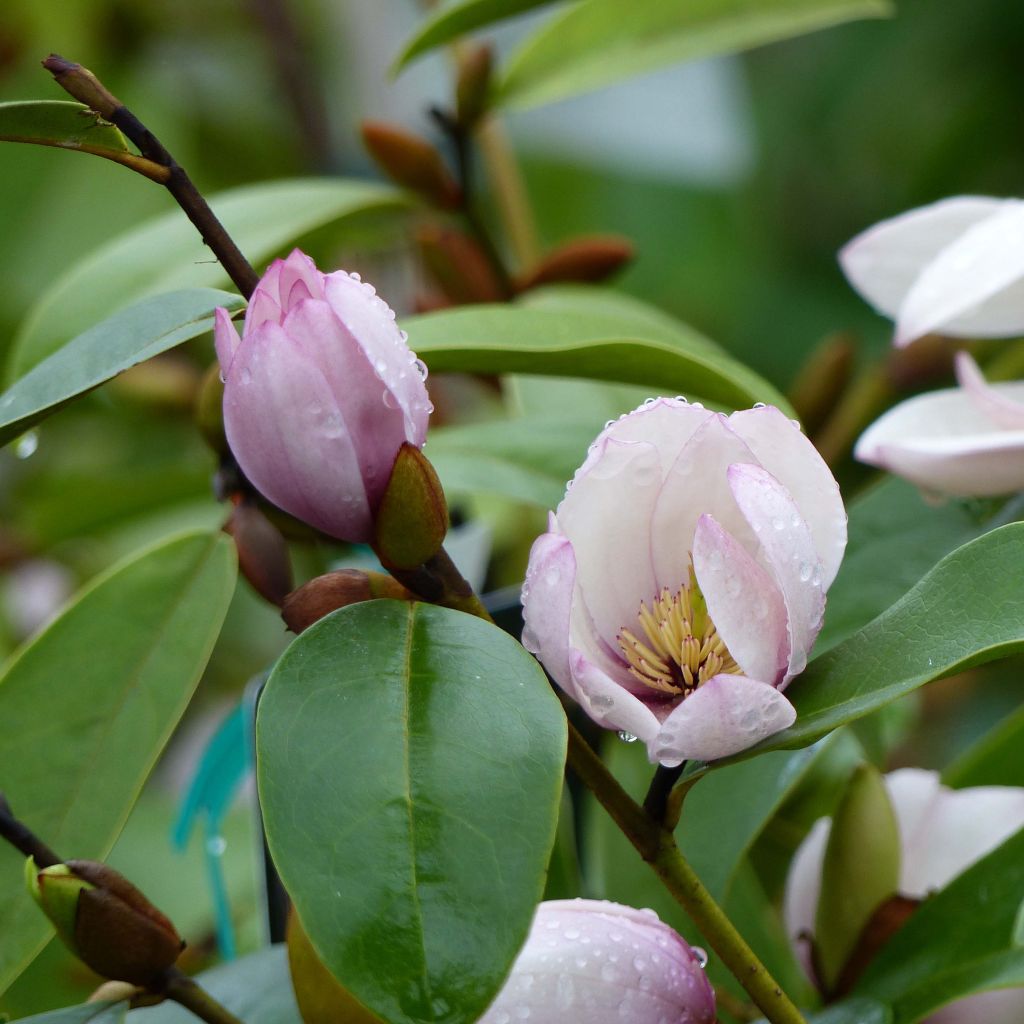

Magnolia Fairy Blush - Michelia hybrid
Magnolia Fairy Blush - Michelia hybrid
Magnolia doltsopa x yunnanensis x figo Fairy Blush®
Michelia, Magnolia
Why not try an alternative variety in stock?
View all →This plant carries a 24 months recovery warranty
More information
We guarantee the quality of our plants for a full growing cycle, and will replace at our expense any plant that fails to recover under normal climatic and planting conditions.
Oversize package: home delivery by special carrier from €6.90 per order..
Express home delivery from €8.90.
Delivery to Corse prohibited: UE law prohibits the import of this plant from mainland France to Corse as part of the fight against Xylella fastidiosa. Please accept our sincere apologies.
More information

Does this plant fit my garden?
Set up your Plantfit profile →
Description
Magnolia Fairy Blush, also known as Michelia hybrid, is a perfectly hardy and remarkably floriferous New Zealand creation. It is a vigorous evergreen bush with a pleasant fragrant pale pink to lilac spring flowering. It has a rounded habit and bears dense foliage. Similar to the magnolia, it bears shiny dark green foliage and cup-shaped flowers. It is a unique, rare plant, seemingly inaccessible, but in reality, no more demanding than its cousin, the magnolia. It can be grown in full sun or partial shade, in a well-worked, light, neutral, or slightly acidic soil.
Magnolia Fairy Blush belongs to the Magnoliaceae family. It is the result of cross-breeding between Michelia doltsopa, native to the eastern Himalayas, Michelia yunnanensis (or Magnolia laevifolia), native to Tibet, and Michelia figo, native to western China. It combines all the qualities inherited from its parents. It is an evergreen bush with a compact habit, both erect and spreading. Its vegetation is dense, with multiple stems and numerous branches. Depending on growing conditions (container or open ground), it will reach a height of 0.80 m to 3 m (2.6 ft to 9.8 ft) and almost the same in width. Its growth is slow, and the adult size has not yet been defined, as horticulturists lack hindsight for this brand-new creation. Flowering begins in March-April and ends in June. The abundant flowers blossom in the axils of each leaf, jostling and succeeding each other, emitting a pleasant, slightly lemony fragrance. Bursting open from velvety reddish buds, they bloom into 10 cm (3.9 in) wide open cups, formed by 6 waxy petals with a subtle pale pink colour with lilac edges, becoming whiter as the season progresses. A bouquet of prominent stamens surrounding a granular club-shaped pistil is revealed in their centre. The foliage is fairly dark green, fresh and shiny, composed of entire and ovate leaves, 8 cm to 10 cm (3.1 in to 3.9 in) long.
Plant Michelia Fairy Blush to showcase it: either on its own, or in groups of three, near a pathway to enjoy its fragrance, or even in large containers on a terrace. It will work wonders as a standalone on a lawn, but also mixed in a flower bed or in a free hedge with viburnums (Viburnum odoratissimum), privets (Ligustrum japonicum), and even in a trimmed hedge.
Michelia champaca, a close relative, is a shrub cultivated in India, from which a highly sought-after essential oil is extracted for perfumery.
Report an error about the product description
Magnolia Fairy Blush - Michelia hybrid in pictures
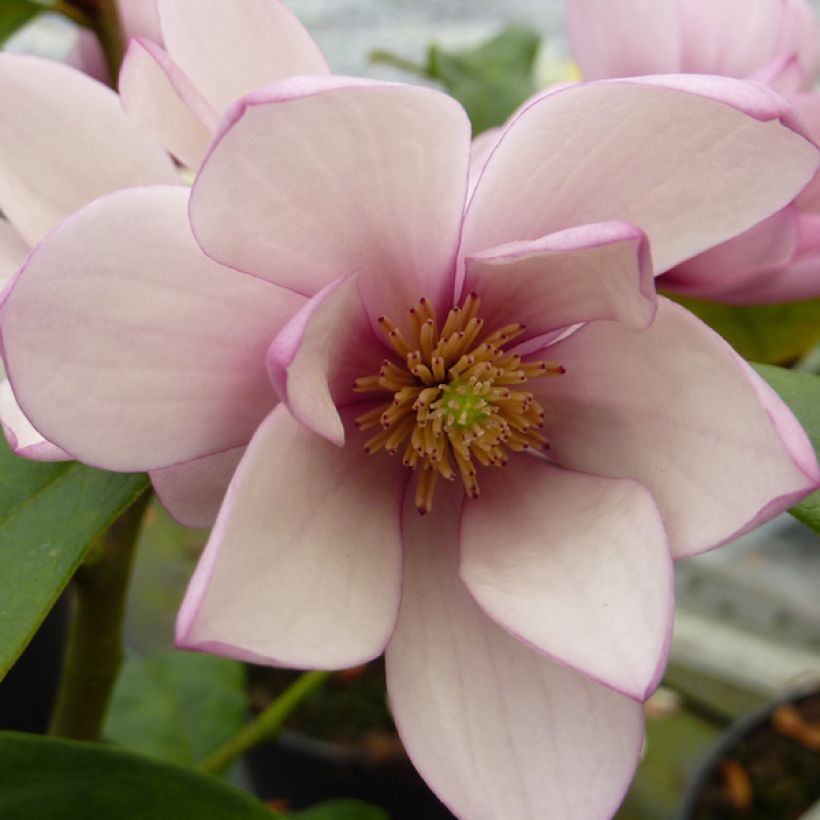



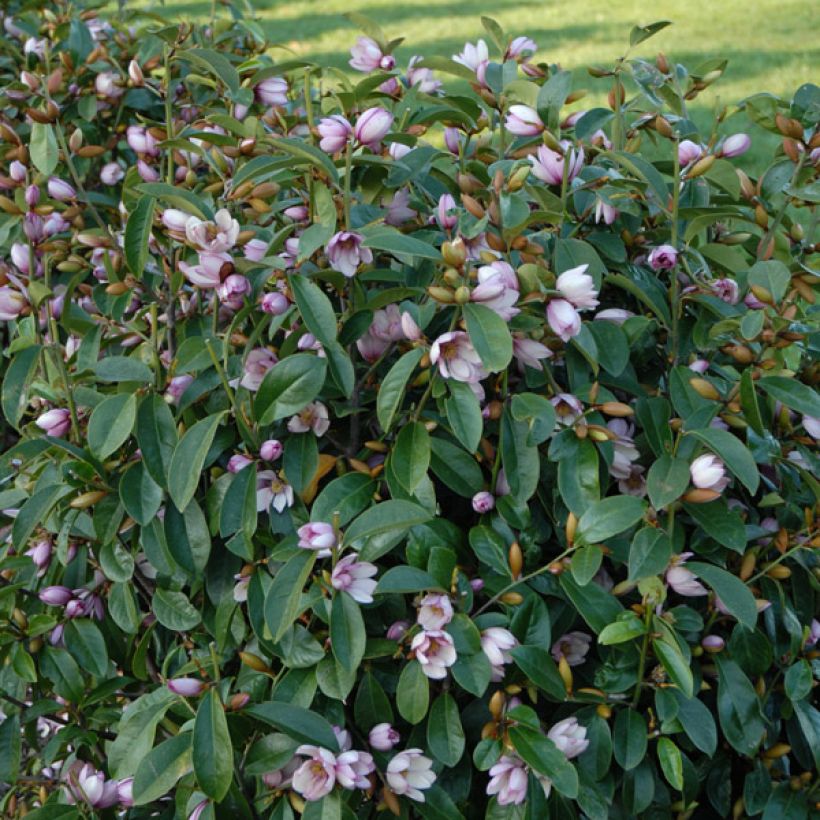

Plant habit
Flowering
Foliage
Botanical data
Magnolia
doltsopa x yunnanensis x figo
Fairy Blush®
Magnoliaceae
Michelia, Magnolia
Cultivar or hybrid
Other Magnolia
Planting and care
Michelia Fairy Blush prefers well-worked, light, neutral or slightly acidic soils, rich in organic matter. It likes moist to dry soil, without stagnant humidity. It appreciates sunny exposures and tolerates partial shade. Its cultivation is possible in open ground in regions with mild winters. Its hardiness reaches about -10° C (14° F). This bush does not tolerate transplantation once it is established, so choose its location carefully.
Its appearance and growth will vary greatly depending on whether it is planted in open ground or in a container, in partial shade or in a sunny exposure. When it grows in shade, its habit is more open and sparse, its foliage darker. Conversely, if it is exposed to the sun, it will show a more compact habit, denser foliage, and smaller and lighter green leaves. When grown in a large container, its development is limited. Watering should be followed in summer, at least during its first years, but it dislikes excess moisture in winter. It becomes more tolerant with age. It may be useful to create a drainage bed at the bottom of the planting hole. In late winter, remove dead wood and intertwined branches, keeping only the vigorous branches to maintain a beautiful habit.
Planting period
Intended location
Care
-
, onOrder confirmed
Reply from on Promesse de fleurs
Evergreen shrubs
Haven't found what you were looking for?
Hardiness is the lowest winter temperature a plant can endure without suffering serious damage or even dying. However, hardiness is affected by location (a sheltered area, such as a patio), protection (winter cover) and soil type (hardiness is improved by well-drained soil).

Photo Sharing Terms & Conditions
In order to encourage gardeners to interact and share their experiences, Promesse de fleurs offers various media enabling content to be uploaded onto its Site - in particular via the ‘Photo sharing’ module.
The User agrees to refrain from:
- Posting any content that is illegal, prejudicial, insulting, racist, inciteful to hatred, revisionist, contrary to public decency, that infringes on privacy or on the privacy rights of third parties, in particular the publicity rights of persons and goods, intellectual property rights, or the right to privacy.
- Submitting content on behalf of a third party;
- Impersonate the identity of a third party and/or publish any personal information about a third party;
In general, the User undertakes to refrain from any unethical behaviour.
All Content (in particular text, comments, files, images, photos, videos, creative works, etc.), which may be subject to property or intellectual property rights, image or other private rights, shall remain the property of the User, subject to the limited rights granted by the terms of the licence granted by Promesse de fleurs as stated below. Users are at liberty to publish or not to publish such Content on the Site, notably via the ‘Photo Sharing’ facility, and accept that this Content shall be made public and freely accessible, notably on the Internet.
Users further acknowledge, undertake to have ,and guarantee that they hold all necessary rights and permissions to publish such material on the Site, in particular with regard to the legislation in force pertaining to any privacy, property, intellectual property, image, or contractual rights, or rights of any other nature. By publishing such Content on the Site, Users acknowledge accepting full liability as publishers of the Content within the meaning of the law, and grant Promesse de fleurs, free of charge, an inclusive, worldwide licence for the said Content for the entire duration of its publication, including all reproduction, representation, up/downloading, displaying, performing, transmission, and storage rights.
Users also grant permission for their name to be linked to the Content and accept that this link may not always be made available.
By engaging in posting material, Users consent to their Content becoming automatically accessible on the Internet, in particular on other sites and/or blogs and/or web pages of the Promesse de fleurs site, including in particular social pages and the Promesse de fleurs catalogue.
Users may secure the removal of entrusted content free of charge by issuing a simple request via our contact form.
The flowering period indicated on our website applies to countries and regions located in USDA zone 8 (France, the United Kingdom, Ireland, the Netherlands, etc.)
It will vary according to where you live:
- In zones 9 to 10 (Italy, Spain, Greece, etc.), flowering will occur about 2 to 4 weeks earlier.
- In zones 6 to 7 (Germany, Poland, Slovenia, and lower mountainous regions), flowering will be delayed by 2 to 3 weeks.
- In zone 5 (Central Europe, Scandinavia), blooming will be delayed by 3 to 5 weeks.
In temperate climates, pruning of spring-flowering shrubs (forsythia, spireas, etc.) should be done just after flowering.
Pruning of summer-flowering shrubs (Indian Lilac, Perovskia, etc.) can be done in winter or spring.
In cold regions as well as with frost-sensitive plants, avoid pruning too early when severe frosts may still occur.
The planting period indicated on our website applies to countries and regions located in USDA zone 8 (France, United Kingdom, Ireland, Netherlands).
It will vary according to where you live:
- In Mediterranean zones (Marseille, Madrid, Milan, etc.), autumn and winter are the best planting periods.
- In continental zones (Strasbourg, Munich, Vienna, etc.), delay planting by 2 to 3 weeks in spring and bring it forward by 2 to 4 weeks in autumn.
- In mountainous regions (the Alps, Pyrenees, Carpathians, etc.), it is best to plant in late spring (May-June) or late summer (August-September).
The harvesting period indicated on our website applies to countries and regions in USDA zone 8 (France, England, Ireland, the Netherlands).
In colder areas (Scandinavia, Poland, Austria...) fruit and vegetable harvests are likely to be delayed by 3-4 weeks.
In warmer areas (Italy, Spain, Greece, etc.), harvesting will probably take place earlier, depending on weather conditions.
The sowing periods indicated on our website apply to countries and regions within USDA Zone 8 (France, UK, Ireland, Netherlands).
In colder areas (Scandinavia, Poland, Austria...), delay any outdoor sowing by 3-4 weeks, or sow under glass.
In warmer climes (Italy, Spain, Greece, etc.), bring outdoor sowing forward by a few weeks.

































